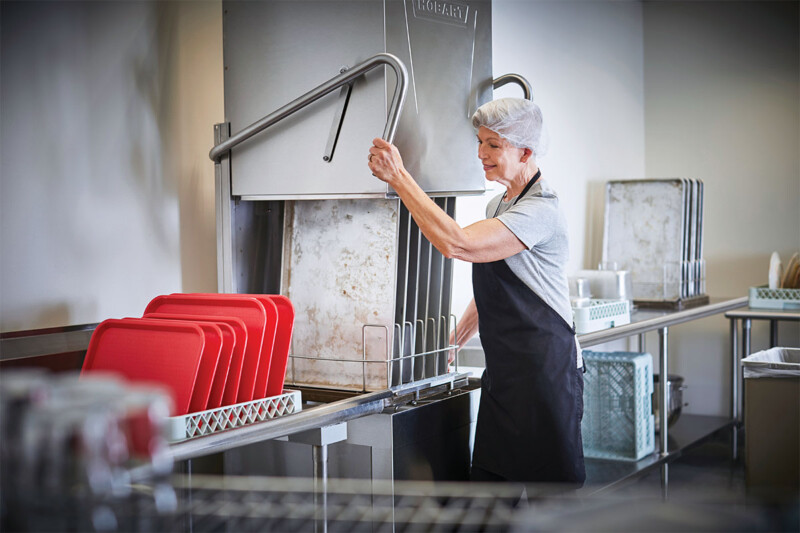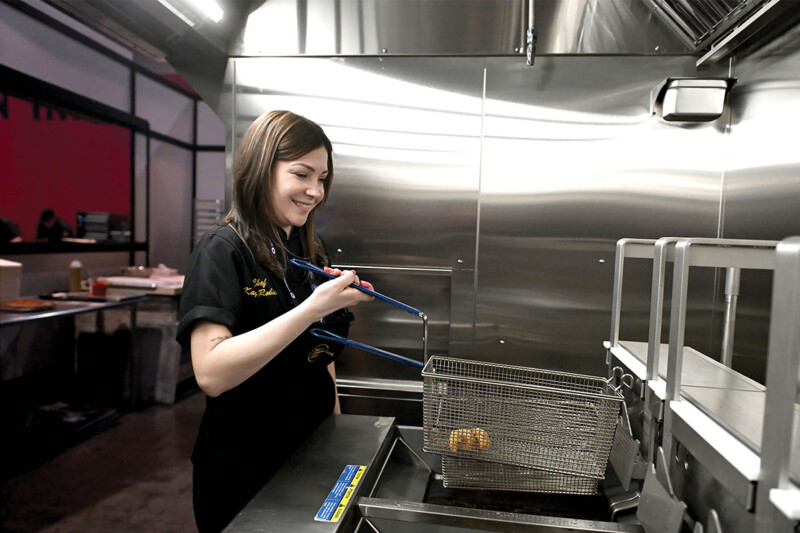Maintenance Tips: What Ops Should Use Where With Water Filters
In most foodservice operations, there are lots of different applications—ice making, cooking, carbonated beverages, hot beverages, dishwashing—that require water, and each has its particular challenges.
Most operations probably can benefit from some filtration—a pre-filter to remove sediment and a carbon filter to remove chlorine and odors. After that, you’re likely better off looking at each application separately and specifying a filtration system to do the job right. Here’s a look at some common applications and possible filtration/treatment solutions to problems caused by poor water quality.
Carbonated beverages. A mechanical filter will remove dirt and sediment, which can inhibit carbonation, and a carbon filter will remove off odors and taste and chlorine. If your water is extremely hard, you may have to consider Reverse Osmosis system (R/O) since ion exchange water softeners will dramatically affect sodas’ taste.
Coffee. If you offer a standard coffee program, use a good mechanical filter and a carbon filter like one you’d use for soda, but add a heat-tolerant polyphosphate or other scale inhibitor to prevent lime buildup. If you have a specialty coffee program, you’ll likely want to go a step further to control the consistency of your water quality (and taste), and may use R/O.
Tea. Again, start with good mechanical and carbon filters. Polyphosphates can turn tea cloudy in appearance. To protect your equipment from scale, use a crystal-forming scale inhibitor instead.
Espresso. The extremely high temperatures at which espresso machines operate make them ideal breeding grounds for scale. To prevent or reduce scale without affecting taste, more and more operators are turning to R/O systems. Higher efficiency and features such as TDS monitors and blending valves on newer models make them more attractive. For better taste and to protect the R/O membrane, use a good pre-filter and carbon filter.
Cooking equipment. Steamers, combi ovens, or any other equipment where water comes in contact with heating elements are all highly susceptible to scale. But here you’re concerned only with scale formation, not taste. A heat-resistant polyphosphate or crystal-forming media will do the trick in most cases. In areas where water is extremely hard, an ion exchange softener can help, or you may decide to spec an R/O system.
Ice machines. These units present their own challenges, particularly when it comes to chlorine. In ice machines, chlorine helps prevent mold growth, but it also is corrosive and affects the taste and odor of ice (and the beverages in which the ice is used). Follow the manufacturer’s recommendation when it comes to whether or not you should use a carbon filter, but do use a good mechanical filter to remove as much dirt and sediment as possible.
Scale also can be a problem in ice machines. Most cubers are designed to cascade water over the evaporator so only pure water freezes, leaving the minerals and sediment where they can be flushed away at the end of an ice-making cycle. You may also consider using polyphosphates, if necessary.
Warewashers. High heat in warewashers can cause scale formation. The least expensive fix here: scale inhibitors such as heat-resistant polyphosphates or crystal-forming media.
Copyright FER February 2011
RELATED CONTENT
- Advertisement -
- Advertisement -
- Advertisement -
TRENDING NOW
- Advertisement -
- Advertisement -
- Advertisement -


